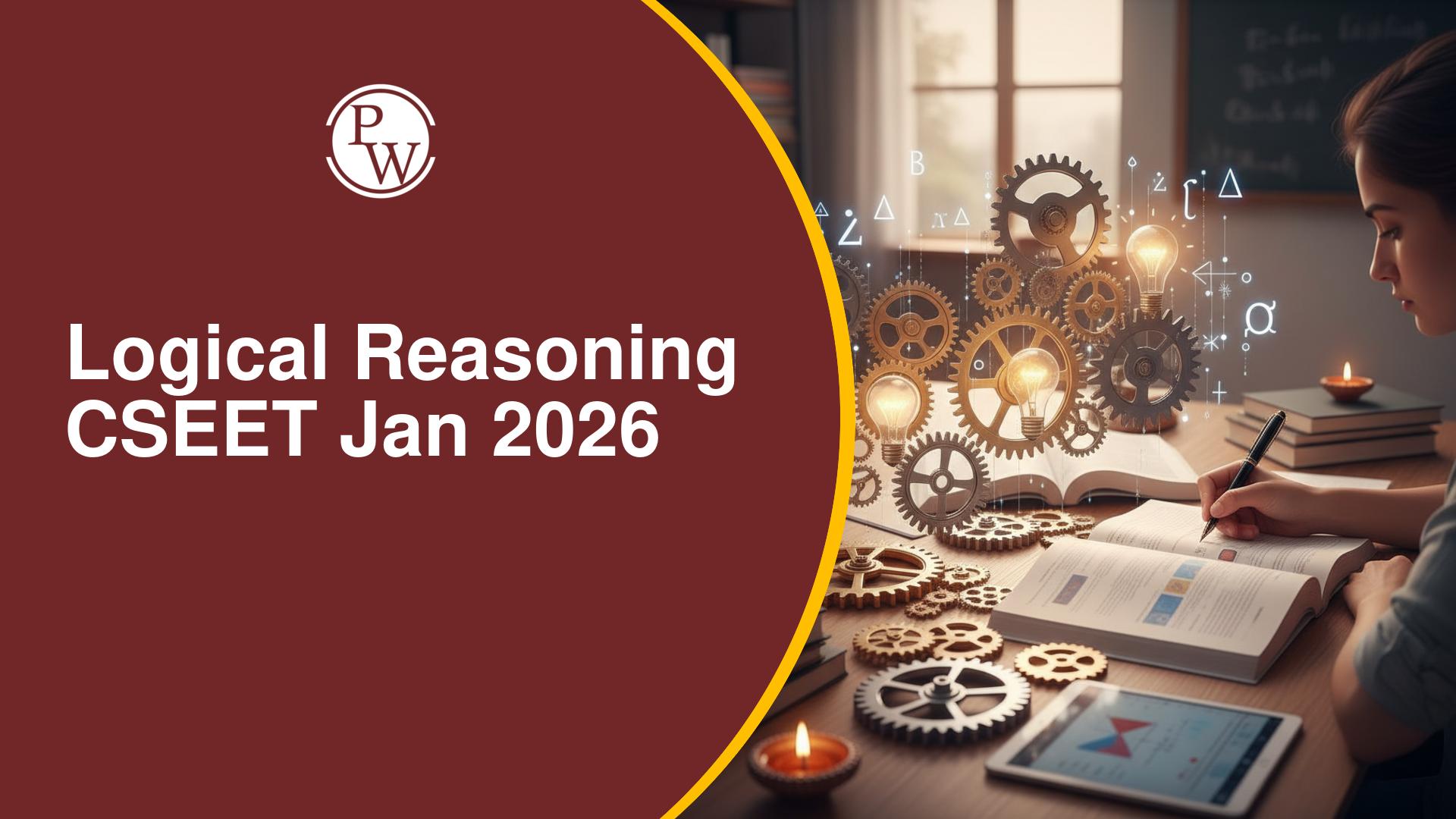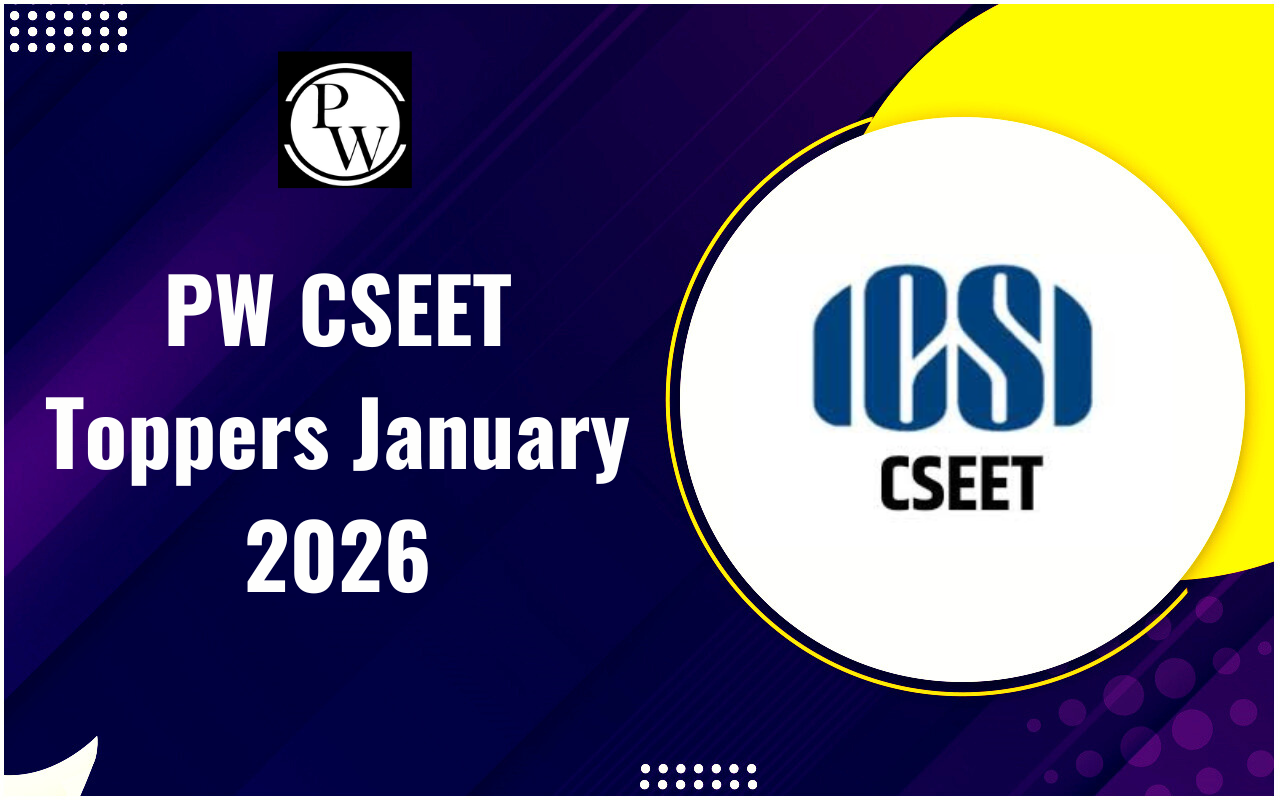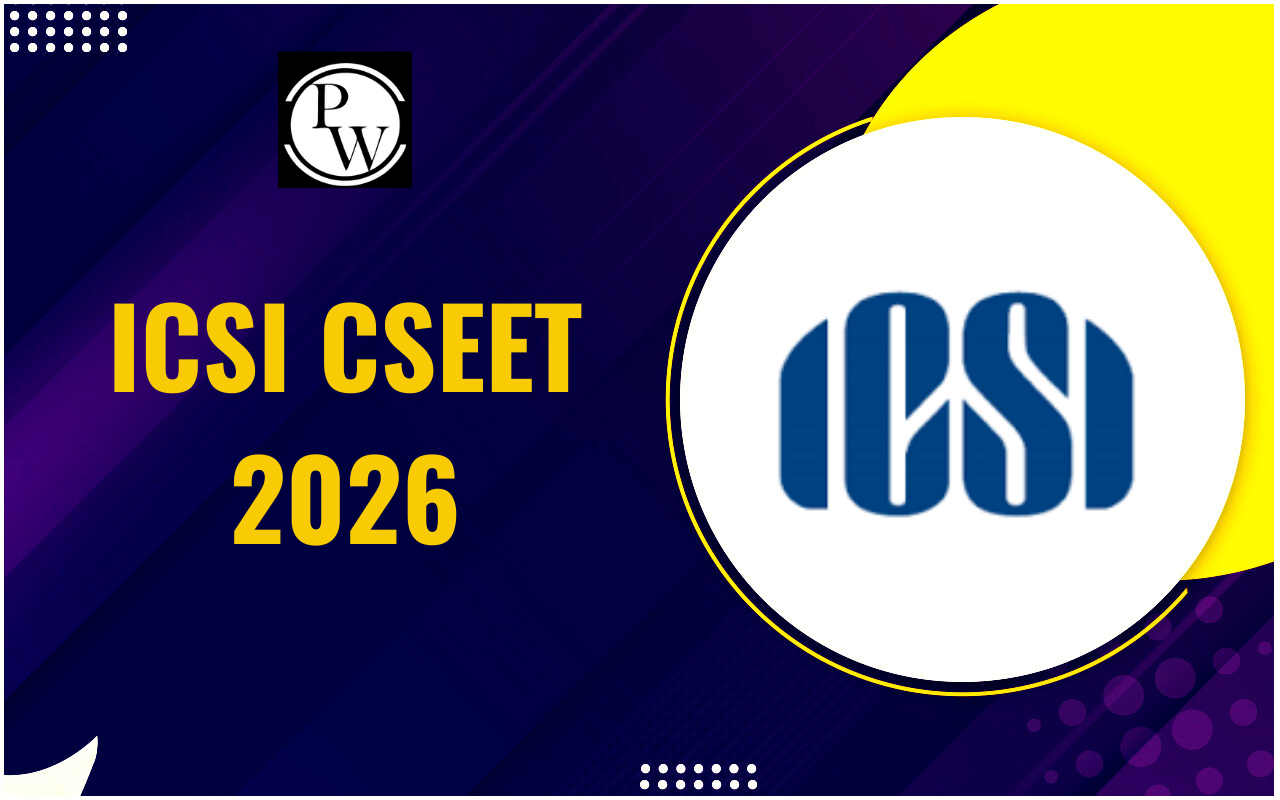
CS Syllabus 2025: The Company Secretary (CS) course is a professional course offered by the Institute of Company Secretaries of India (ICSI) for those who aspire to become company secretaries. The course consists of three levels: Foundation, Executive, and Professional. The syllabus for each level covers various aspects of law, management, finance, and governance. The syllabus for the CS course is updated periodically to keep pace with the changing business environment and legal framework. This page has all the details about the CS syllabus 2025.
ICSI CS Syllabus 2025
If you signed up for the ICSI CS Executive program before 2017, you could now switch to the updated CS syllabus from 2022. The link to switch is available now. If you're interested in switching, make sure to familiarize yourself with the new syllabus and exemptions for each paper to start preparing. Similarly, if you enrolled in the ICSI CS Professional program before 2017, you have the option to switch to the new syllabus from 2022. Just like with the Executive program, make sure to understand the new syllabus and exemptions for each paper if you plan to switch. The Last CS exam for the ICSI CS Professional under the old syllabus is scheduled for June 2025. ICSI sets the syllabus for both Executive and Professional programs. Candidates preparing for these exams should review the important topics. The updated CS syllabus includes the Online Company Secretary Executive Entrance Test (CSEET), Executive program, and Professional program.CS Syllabus 2025 for Executive Exam (New)
Check the CS Executive Syllabus 2025 (New) below to gain insight into the updated curriculum.
| CS Exam Pattern for Executive Programme (New Syllabus) | ||
| Group Name/ Paper Number | Subject | Marks |
| 1.1 | Jurisprudence, Interpretation & General Laws | 100 |
| 1.2 | Company Law & Practice Part 1- Company Law - Principles and Concepts | 60 |
| Part 2 - Company Administration & Meeting | 40 | |
| 1.3 | Setting Up of a Business, Industrial & Labour Laws Part 1 - Setting Up of a Business | 60 |
| Part 2- Industrial & Labour Laws | 40 | |
| 1.4 | Corporate Accounting and Financial Management Part 1 - Corporate Accounting | 60 |
| Part 2- Financial Management | 40 | |
| 2.5 | Capital Market & Securities Laws Part 1- Capital Market | 40 |
| Part 2- Securities Laws | 60 | |
| 2.6 | Economic, Commercial and Intellectual Property Laws Part 1- Economic & Commercial Laws | 60 |
| Part 2- Intellectual Property Laws | 40 | |
| 2.7 | Tax Laws & Practice Part 1- Direct Tax | 60 |
| Part 2- Indirect Tax | 40 | |
CS Syllabus 2025 for Professional Exam (New)
The updated syllabus for the ICSI CS Professional course will apply to candidates registering for the June 2025 exam session. Scroll down to discover the details of the new CS Professional syllabus 2025.
| ICSI CS Exam Pattern for Professional Programme | ||
| Group 1 | ||
| Paper Number | Subjects | Marks |
| 1 | Environmental, Social and Governance (ESG) – Principles & Practice Part I – Governance and Sustainability | 65 |
| Part II – Risk Management | 20 | |
| Part III- Environment & Sustainability Reporting | 15 | |
| 2 | Drafting, Pleadings and Appearances Part I - Drafting and Conveyancing | 70 |
| Part II - Pleadings and Appearances | 30 | |
| 3 | Compliance Management, Audit & Due Diligence Part I – Compliance Management | 40 |
| Part II – Audit & Due Diligence | 60 | |
| 4 | Elective 1 (Select one Paper out of 4 Elective Papers) | |
| Group 2 | ||
| Paper Number | Subjects | Marks |
| 5 | Strategic Management & Corporate Finance Part I – Strategic Management | 40 |
| Part II – Corporate Finance | 60 | |
| 6 | Corporate Restructuring, Valuation and Insolvency Part I – Corporate Restructuring | 40 |
| Part II – Valuation | 20 | |
| Part III – Insolvency, Liquidation & Winding up | 40 | |
| 7 | Elective 2 (Select one Paper out of 5 Elective Papers) | |
| Elective Subjects | ||
| Paper Number | Elective 1 | Elective 2 |
| 4.1 | CSR & Social Governance Part I – Corporate Social Responsibility (50 Marks) Part II – Social Governance (50 Marks) | Arbitration, Mediation & Conciliation Part I – Arbitration & Conciliation (70 Marks) Part II – Mediation (30 Marks) |
| 4.2 | Internal and Forensic Audit Part I – Internal Audit (60 Marks) Part II – Forensic Audit (40 Marks) | Goods and Services Tax (GST) & Corporate Tax Planning Part I – Goods and Services Tax (GST) (70 Marks) Part II – Corporate Tax Planning (30 Marks) |
| 4.3 | Intellectual Property Rights – Law & Practice (100 Marks) | Labour Laws & Practice (100 Marks) |
| 4.4 | Artificial Intelligence, Data Analytics and Cyber Security – Laws & Practice (100 Marks) | Banking & Insurance – Laws & Practice Part I – Banking Laws (50 Marks) Part II – Insurance Laws (50 Marks) |
| Insolvency and Bankruptcy – Law & Practice (100 Marks) | ||
Switchover from CS Old Syllabus (2017) to CS New Syllabus (2022)
The following are the paper wise exemption details for the switchover from Old CS Syllabus 2017 to New CS Syllabus 2022:CS Executive Syllabus Switchover
Transitioning from the old syllabus introduced in 2017 to the updated syllabus of 2022. Here are the specifics regarding exemptions for individual papers in the Executive Program.
| Executive Program | |
| Existing Syllabus (2017) | Paper wise Exemption Under New Syllabus (2022) |
| Module 1 | |
| Jurisprudence, Interpretation & General Laws | Group 1, Paper 1 - Jurisprudence, Interpretation & General Laws |
| Company Law | Group 1, Paper 2 - Company Law & Practice |
| Setting up of Business Entities and Closure | Group 1, Paper 3 - Setting up of Business, Industrial & Labour Laws |
| Tax Laws | Group 2, Paper 7 - Tax Laws & Practice |
| Module 2 | |
| Corporate and Management Accounting | Group 1, Paper 4 - Corporate Accounting and Financial Management |
| Securities Laws & Capital Markets | Group 2, Paper 5 - Capital Market & Securities Laws |
| Economic, Business and Commercial Laws | Group 2, Paper 6 - Economic, Commercial and Intellectual Property Laws |
| Financial and Strategic Management | Group 1, Paper 4 - Corporate Accounting and Financial Management |
CS Professional Syllabus Switchover
Switchover from the previous syllabus (2017) to the updated syllabus (2022) comes with specific details regarding paper exemptions for the Professional Program.
| Switchover from CS Professional Old Syllabus (2017) to New Syllabus (2022) | |
| Existing Syllabus (2017) | Paper wise Exemption Under New Syllabus (2022) |
| Module 1 | |
| Governance, Risk Management, Compliances and Ethics | Group 1, Paper 1 - Environmental, Social and Governance (ESG) – Principles & Practice |
| Advanced Tax Laws | No Exemption |
| Drafting, Pleadings and Appearances | Group 1, Paper 2 - Drafting, Pleadings and Appearances |
| Module 2 | |
| Secretarial Audit, Compliance Management and Due Diligence | Group 1, Paper 3 - Compliance Management, Audit & Due Diligence |
| Corporate Restructuring, Insolvency, Liquidation & Winding-up | Group 2, Paper 6 - Corporate Restructuring, Valuation and Insolvency |
| Resolution of Corporate Disputes, Non-Compliances & Remedies | No Exemption |
| Module 3 | |
| Corporate Funding & Listings in Stock Exchanges | Group 2, Paper 5 - Strategic Management and Corporate Finance |
| Multidisciplinary Case Studies | No Exemption |
| Elective Paper | |
| Banking – Law & Practice | Elective 2, Paper 7.4 - Banking & Insurance – Laws & Practice |
| Insurance– Law & Practice | Elective 2, Paper 7.4 - Banking & Insurance – Laws & Practice |
| Intellectual Property Rights– Laws and Practices | Elective 1, Paper 4.3 - Intellectual Property Rights – Law & Practice |
| Forensic Audit | Elective 1, Paper 4.2 - Internal and Forensic Audit |
| Direct Tax Law & Practice | No Exemption |
| Labour Laws & Practice | Elective 2, Paper 7.3 - Labour Laws & Practice |
| Valuations & Business Modelling | No Exemption |
| Insolvency – Law and Practice | Elective 2, Paper 7.5 – Insolvency and Bankruptcy Law & Practice |
Steps to Apply for CS Syllabus Switchover
The following are the steps for CS Syllabus Switchover:Step 1: Go to icsi.edu.
Step 2: Click on the 'online services' tab.
Step 3: Select "New Foundation Student Login/Executive Student Login" and log in.
Step 4: Navigate to Module > Switchover > Apply for switchover.
Step 5: You'll see the student request screen.
Step 6: Fill in the required details.
Step 7: Review and confirm the entered information.
Note: There's no fee for a switchover application.
ICSI CS Exam Pattern
Prospective candidates aiming to excel in the ICSI CS exam should familiarize themselves with CS exam pattern. Refer to the table below for key highlights.
| ICSI CS Exam Pattern | |
|---|---|
| Features | Details |
| Mode of examination | Executive Programme: A combination of 20% case-based objective type questions and 80% descriptive questions for all papers except Paper No. 4 (Corporate Accounting and Financial Management), which is entirely descriptive.
Professional Programme: Descriptive questions only. |
| Duration | Three hours for each paper |
| Marks | 100 marks for each paper |
Preparation Tips for ICSI CS Syllabus
Here are some preparation tips for the ICSI CS (Company Secretary) syllabus:Understand the Syllabus Familiarize yourself with the entire syllabus for all three stages: Foundation, Executive, and Professional. Prioritize high-weightage topics and focus more on subjects where you have weak areas.
Create a Study Plan Develop a structured study plan, allotting specific time slots for each subject. Ensure to cover both theoretical and practical subjects, allowing time for revision. Stick to daily goals for steady progress.
Focus on Conceptual Clarity CS subjects, especially in law, require deep understanding and conceptual clarity. Avoid rote learning. Use reference books recommended by ICSI and refer to the Bare Acts for clarity in law-related subjects.
Practice Writing Answers Answer writing practice is essential, especially for the theoretical papers. Write in a clear, concise, and logical manner. Practice past years' question papers and mock tests.
Stay Updated on Amendments Laws and regulations keep changing. Ensure you're updated on all recent amendments, especially for papers like Taxation, Corporate Law, and Securities Law.
ICSI CS Syllabus 2025 FAQs
What is the total number of papers in the old syllabus of the CS Executive 2025 Exam?
Is there any Negative marking in the CS Executive exam?
What is the time duration for each paper in the CS Executive 2025 Exam?
What is the mode of the ICSI CS Professional Exam?
Is the CS Professional exam objective or subjective?










